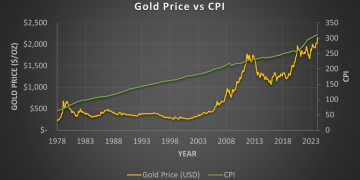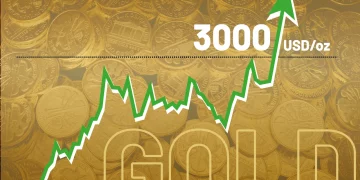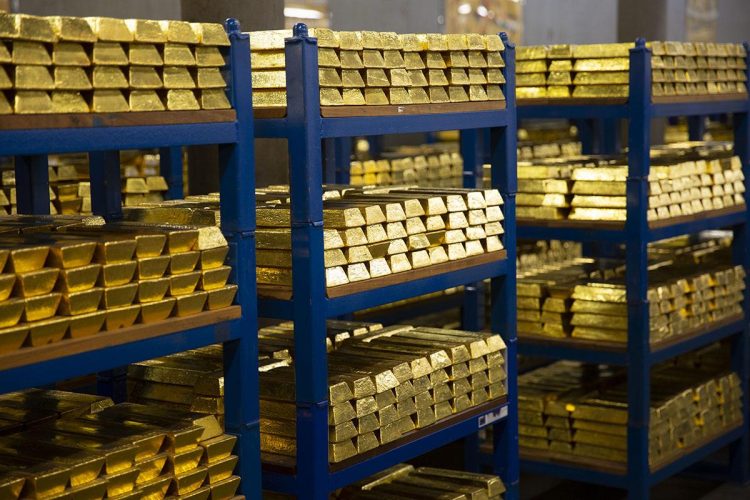As the global financial landscape continues to evolve, so too does the demand for gold as an investment vehicle. In 2025, several key markets are becoming the epicenters of gold trading, offering unique opportunities for investors. From tax incentives to regulatory advantages, these hubs are shaping the future of gold investment. This article explores the most promising gold markets, including Dubai, Singapore, and Zurich, and provides expert insights on how these regions are leading the charge. Additionally, we’ll highlight important factors such as tax laws, market access, and local pricing dynamics to help investors make informed decisions.
Investment-Friendly Destinations: Dubai, Singapore, Zurich
Dubai: A Gateway to the Gold Trade
Dubai has long been a significant player in the global gold market. Known as the “City of Gold,” it offers an investor-friendly environment with some of the most competitive tax policies in the world. Dubai has no value-added tax (VAT) on gold, which is a substantial advantage for those looking to buy and sell precious metals without incurring additional fees. Moreover, the emirate’s robust infrastructure, including world-class logistics, makes it an ideal hub for gold trading.
The Dubai Gold and Commodities Exchange (DGCX) plays a vital role in facilitating gold trading. With its high liquidity and transparent pricing, the DGCX enables both institutional and individual investors to engage in the gold market with ease. Additionally, Dubai’s strategic location as a trade hub between the East and West further enhances its status as a gold market leader. For investors, this accessibility and favorable tax environment make Dubai a top destination in 2025.
Singapore: Southeast Asia’s Gold Market Powerhouse
Singapore’s well-established reputation as a financial hub extends to its growing gold market. The city-state offers a high degree of transparency, an efficient regulatory framework, and robust financial services. Singapore is a particularly attractive destination for investors due to its zero percent Goods and Services Tax (GST) on investment-grade precious metals, including gold. This makes it one of the most tax-efficient places to buy and store gold.
The Singapore Exchange (SGX) and the Singapore Precious Metals Exchange (SGPMX) are the primary platforms for trading gold, with an increasing number of investors flocking to the region due to its stability and favorable taxation policies. Moreover, Singapore’s strategic position within Asia, combined with its low political risk, positions it as a strong contender for gold investment in the coming years. With a growing demand for gold from neighboring countries such as China and India, Singapore is expected to continue thriving in the global gold market.
Zurich: Switzerland’s Timeless Gold Hub
Zurich, Switzerland, is a name that resonates with those who have long been interested in gold investment. Known for its centuries-old reputation for financial stability and security, Zurich remains one of the most influential gold trading hubs in Europe. The Swiss have long been known for their expertise in precious metals, and Zurich is home to some of the world’s largest gold refineries, such as PAMP Suisse and Argor-Heraeus.
Switzerland’s neutrality and strong banking secrecy laws have historically made it an attractive location for wealthy investors. The Swiss Financial Market Supervisory Authority (FINMA) ensures that the gold market is well-regulated, offering confidence to both buyers and sellers. Moreover, Switzerland has a deeply ingrained culture of precious metals investment, and Zurich’s role as a key player in the global gold market is unlikely to diminish anytime soon. With low taxes on gold purchases and a well-regulated market, Zurich continues to be one of the most sought-after destinations for gold investors in 2025.

Tax, Regulation, and Market Access Factors
When considering where to invest in gold, understanding the tax and regulatory environment is crucial. Tax incentives such as the absence of VAT on gold purchases in Dubai and Singapore make these destinations attractive for investors. Additionally, Switzerland’s low taxes on precious metal transactions offer a competitive edge for those seeking to maximize their returns.
Regulations also play a pivotal role in shaping the investment landscape. Dubai, Singapore, and Zurich all offer highly transparent and secure regulatory frameworks that ensure investor protection. The Swiss regulatory environment, in particular, is known for its clarity and reliability, which further enhances Zurich’s standing as a global gold trading hub.
Market access is another factor to consider. Both Dubai and Singapore offer easy access to global markets due to their strategic geographic locations. Zurich’s reputation for financial stability and its central position in Europe make it an ideal destination for investors looking to tap into the European market.
Expert Insights on Local Pricing Dynamics
Experts agree that local pricing dynamics can significantly impact gold investment strategies. While global gold prices are influenced by macroeconomic factors, regional markets may experience fluctuations due to local supply and demand factors. In Dubai, for example, high demand from Middle Eastern investors, combined with limited local supply, can drive up prices. Similarly, in Singapore, strong demand from neighboring countries such as China and India can lead to price adjustments that reflect regional dynamics.
In Zurich, the price of gold may be influenced by the economic conditions of the European Union and the broader European market. Geopolitical events, such as the ongoing challenges related to the EU and Brexit, can also impact gold prices in Switzerland. Understanding these local factors is crucial for investors looking to navigate the global gold market effectively.
Tips for Buyers Combining Travel and Investment
For investors looking to combine their love for travel with gold investment, these global hubs offer great opportunities. Here are some tips for making the most of your gold investments while traveling:
- Research Local Market Conditions: Before buying gold in any of these markets, research the current market conditions. Factors such as demand, pricing trends, and geopolitical events can influence local gold prices.
- Leverage Tax Advantages: Take advantage of tax incentives in markets like Dubai and Singapore, where gold purchases are not subject to VAT. This can lead to significant savings over time.
- Diversify Your Gold Portfolio: If you’re visiting multiple destinations, consider diversifying your gold investments. For example, purchase investment-grade gold bars in Singapore and designer jewelry in Dubai or Zurich for both aesthetics and value appreciation.
- Use Secure Storage Options: Many of these gold hubs offer secure storage solutions, ensuring that your investment is protected. Whether in a bank vault or a private storage facility, it’s important to consider security when investing in physical gold.
- Consult Local Experts: Local experts can provide invaluable insights into the market and help you navigate the purchasing process. Whether through a financial advisor or a trusted local dealer, expert guidance is key to making informed decisions.
Conclusion
As we approach 2025, Dubai, Singapore, and Zurich remain at the forefront of the global gold market. These regions not only offer attractive tax incentives and regulatory environments but also provide a wealth of opportunities for investors seeking exposure to gold. By understanding local market conditions, leveraging tax advantages, and diversifying investments, gold investors can position themselves for success in these booming hubs.
As gold prices continue to fluctuate and the global economy evolves, these regions will play a pivotal role in shaping the future of gold investment. Whether you’re a seasoned investor or a first-time buyer, these cities offer the ideal combination of stability, opportunity, and market access to help you maximize your gold investments in 2025 and beyond.
































